Forever Young: Can Science Reverse Ageing?
Is ageing inevitable, or can science help stop or even reverse the process? From young blood to diet fads, and stem cells to dancing, we explore what the experts think will keep us healthier for longer.
In this episode

00:45 - How old am I on the inside?
How old am I on the inside?
with Marija Pezer, GlycanAge
Is your age as simple as the number of candles on your birthday cake? Georgia Mills spoke to Marija Perez from the company GlycanAge about the difference between our biological and chronological ages.
Marija - When we think of ageing, we usually talk about chronological age: the time that has passed since our birth, but all of us have seen or know people that appear much older or much younger than their chronological age. This is because their organism is actually healthier/younger, or sicker/older than other people of their chronological age.
Georgia - This is Marija Pezer. The head of product development at a company called Glycanage. They offer a service purporting to measure our biological age. The test, which uses a sample of blood, looks for something inside called glycan structures which are found on the end of certain proteins...
Marija - They are an important structural and functional element of the majority of all our proteins. In short, this means glycans are involved in virtually all physiological processes that take place in our bodies.
Unlike proteins, the structures of glycans are not hardwired in our DNA. This means that they do not have a genetic template but they can include not just what we inherit, but are crucially affected by all that we have done in our lives. So they are basically impacted by a variety of biological and environmental factors.
Georgia - How do we know they’re these indicators of what’s going on inside us; where does the evidence for this come from?
Marija - This test is based on twenty years long research period by our multidisciplinary team of scientists that are working in the field of glycan biology and ageing. We have published over 100 peer reviewed scientific publications, and in these studies that we performed on over 40,000 individuals worldwide we found that as we age, and as we suffer from different types of diseases, our IgG glycan pattern changes.
Georgia - So someone who is slightly less healthy would have an older biological age than their chronological age and visa versa. You mentioned there’s a genetic component - what in your lifestyle can affect this?
Marija - We are currently in the process of researching what lifestyle interventions can change our biological age and what it is that influences them. We have some hints that basically, all the factors that we know are necessary for a healthy lifestyle are involved in this 50% component that comes from the environment.
This means healthy eating, healthy sleep habits, stressful or stressless environment, exercise, not drinking alcohol, not smoking, so there is nothing new to that. But the glycan age really serves as a kind of wakeup call for the people that might think that they are healthy, that believe themselves to be leading a healthy lifestyle and then maybe they’re not always as healthy as they think they are.
Georgia - I got my glycan age tested. I sent off some blood a couple of weeks ago and I believe you have the result, so I guess give it to me straight Doc…
Marija - Okay. Are you sitting?
Georgia - Yes, I’m sitting down.
Marija - So Georgia - your glycan age result is 38, which means that your biological age is 11 years higher than your chronological age. It’s not so good but it could be worse so you still have much time and room to improve.
This might be influenced by your lifestyle which seems to be pretty stressful.
Georgia - Oh really, stressful. Is it all these radio programmes I’m producing are ageing me?
Marija - Yeah. I guess this is not really helping is it.
Georgia - I’m quite surprised by how bad they are. How far apart do you see in people’s results the difference between the chronological age and the biological age?
Marija - I was serious when I said your results were not that bad really because we do see much worse glycosylation patterns than yours. We had some people that turned out 30+ older than their chronological age was, and then they were pretty worried and started examining their lifestyle choices.
Georgia - How often do you get it the other way round where someone’s doing ten years younger than they should be?
Marija - Yeah we do get - that’s me thank you.
Georgia - Oh, amazing. So you’re quite happy with your results then?
Marija - Yeah, so I’m not going to repeat the test ever again! I’m just happy with the way it turned out the first time.
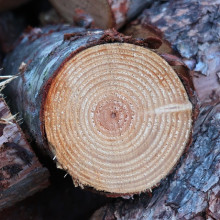
Why do we grow old?
with Judith Campisi, Buck Institute for Research on Aging
Ageing happens to each and every one of us, but what is really going on and why does it happen? Georgia Mills spoke to Judy Campisi, a professor at the Buck Institute for Research on Aging.
Judy - Of course, we don’t have a clear definition of ageing except to say that it’s a process by which multiple systems within the body are declining in function, and it can be driven by any number of external and internal forces that cause this decline.
Georgia - How does aging affect the different parts of the body?
Judy - It’s interesting that ageing affects different tissues in different ways, but also different people and different animals of different genetic background don’t all age in exactly the same way. So there are some declines in tissue function that we recognise as aging: wrinkles in the skin, eventually loss of muscle mass, and loss of cognitive ability, but not all people and not all genetic backgrounds have the same trajectory for each tissue.
Georgia - What is going on then inside us on a cellular basis to cause this gradual decline?
Judy - The short answer is: we don’t know. The longer answer is: we believe that there probably are a few fundamental processes that we define as a so-called ‘basic ageing process’ that can drive the decline in multiple tissues. One of them is a cellular process - this is what we study - it’s called ‘cellular senescence,’ and what it is a stress response to which cells respond by doing three basic things.
The first thing is they stop dividing. This turns out to be a very important mechanism for preventing cancer. You don’t want stressed or damaged cells to proliferate.
The second thing that the cells do is they begin to secrete molecules that can have rather profound effects on neighbouring cells; that is important for alerting the tissue to the possibility that there is a problem - possible damage or possible injury.
The other thing is they initiate a process called ‘inflammation.’ This is a process in which small molecules attract the immune system, and it turns out that initial attraction is also very important for wound healing and tissue repair, so that’s good - right?
The problem is the third part of what happens to senescent cells. They don’t die very readily, they don’t go away and so now the system becomes chronic. So with age, we slowly accumulate senescent cells and we experience a condition that is been termed ‘inflammaging,’ and what it is is low level chronic inflammation. And virtually every age related disease has as either it’s cause or as a major contributor this process of chronic inflammation.
So we believe now that the process of senescence, which evolved for the good purpose of preventing cancer, and promoting tissue repair can be become what we term ‘maladaptive,’ that is it not longer serves us for good purposes as we age and then begin to drive those aging pathologies.
Georgia - There are a number of other ideas about what could be aging in the body and we’ll look at some of them later in the programme. But what drives the fact that one of us might age faster than another? Some 70 year olds run marathons, others can barely make it up the stairs.
Judith - In our environment everyone knows what they need to do to postpone aging, so don’t smoke, eat a balanced diet, eat your veggies, exercise. Exercise is actually one of the best things you can do to preserve tissue health, and the other thing is choose your grandparents wisely because there is a genetic component. As you know, living to be 100 tends to run in families
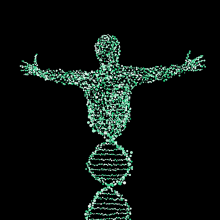
11:11 - Does your DNA impact your lifespan?
Does your DNA impact your lifespan?
with Joao Pedro Magalhaes, University of Liverpool
Do we know which parts of our DNA relate to our ageing, and how much of an effect it has? Georgia Mills spoke to Joao Pedro Magalhaes from Liverpool University.
Jaoa - You can actually quantify the impact of genetics, the heritability of longevity, and the heritability of human longevity is about 25%. That means that 25% is genetic. Now that is not much. Having said that, one thing we also know is that heritability of human longevity increases with age. So what it means is that long-lived individuals like centenarians have a much greater genetic component to their longevity than for the rest of us.
Joao - I became interested in ageing when I was a child. I was quite young and I first became aware of my own mortality and the fact that everyone ages and dies, and that scared me. That scared me a lot - the fact that my parents were going to age and die and ultimately, not how well I took care of my health, I took care of myself, I would age and die.
This was before the internet so I wasn’t even aware that you could study ageing, but I was aware of the biomedical research. I knew we had medicines that could cure diseases that we couldn’t cure decades ago. I thought I would be the first one to study ageing and not just would I study ageing, but I would develop a cure for it, so from a very early age I decided that this was the road I would embark on - understanding ageing and ultimately curing ageing.
Georgia - You say curing ageing, does that mean that you consider ageing to be a disease?
Joao - That’s a very good question, but I think it’s mostly an issue of semantics whether it’s classified as a disease or not. Aging as a process is very detrimental and it is indirectly the reason what more than two-thirds of people in the world today die of. So from that perspective, ageing is a detrimental process that causes tremendous suffering, diseases, and death, and from that perspective, it is something that we should try to intervene on and try to fight.
Georgia - So now he has a lab devoted to understanding the ageing process, which includes looking at the genetics involved.
Joao - What we’re trying to do is we’re trying to identify which genes are involved in this exceptional human longevity and hopefully, if we can identify genes, then we may be able to discover drugs of small molecules that mimic the effects of longevity genes for the rest of us allowing us all to live longer, healthier lives.
Georgia - Okay. How are you trying to pinpoint these super long-life genes?
Joao - We have projects using human datasets like the UK Biobank and the Framingham Heart Study to try to identify genes associated with longevity and age-related diseases. We also have a collaboration with scientists in the US to study supercentenarians. These are individuals that live over 110 years, and so we’re trying to identify genes in these individuals that are associated with their exceptional longevity.
Georgia - Have you found any candidates yet?
Joao - There are a few candidates but there’s nothing definitive. I mentioned earlier that we know a lot about genetic manipulations of ageing in animal models, so there’s been huge advances in genetic regulation of ageing in animals. We know of hundreds of genes that can regulate ageing in animals.
Having said that, there’s a big gap in our knowledge about the genetic basis of human longevity. And although there are a few genes associated with human longevity, this explains very little of the variation in human longevity, of the heritability of human longevity. So the answer is no, we don’t understand yet why some people live over 100 years or 110 years - that still remains to be discovered.
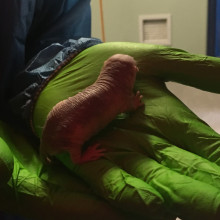
Millennial mole rats
with Ewan St John Smith, University of Cambridge
Some naked mole rats alive today were born in the late 1980s. Most similar animals their size live for about one or two years, so how are they doing it? Georgia Mills spoke to Cambridge University's Ewan St John Smith...
Ewan - Here we’ve got two colonies of naked mole rats. The naked mole rats are mammals; they’re rodents, but there’ rather unusual because they’re naked. They have some hairs down the sides of their body they use for orientating themselves but, unlike our stereotypical mammal, they’re hairless. The polite thing to say is they look like a cocktail sausage with legs and teeth.
Georgia - Why are naked mole rats of interest to scientists?
Ewan - The first thing that made them of interest to scientists was when it was observed they live in these big colonies headed up by a breeding female. We call this eusocial - they have one breeding animal in a colony, it’s a bit like bees and termites. Then they’re cold blooded, that’s makes them interesting to scientists.
But from a biomedical perspective, what’s really interesting is that these animals live for over 30 years. Based on their size - usually bigger animals live for longer - we’d predict them to live somewhere between three and four years so trying to understand how they live healthily for a long time is what a lot of scientists are interested in.
We have a few ideas about why that is: they’re highly resistant to cancer. It used to be the case if people said mole rats don’t get cancer, but now there’s been one or two incidences. But mice, if you look after them in captivity, usually two thirds or more die of cancer between 18 months and 28 months of age.
So they’re highly resistant to cancer and it also appears that they’re highly resistant to cognitive or neurological impairments. As they get older we don’t notice the animals struggling to negotiate their colonies. There’s not many incidents of them developing neurodegenerative conditions but, that said, there hasn’t been a huge amount of study looking at older animals. The animals that were born in my colonies last week, they’ll naturally die when I retire so looking at ageing in a rodent like this is quite complicated.
Georgia - Do we know how they’re resistant to cancer?
Ewan - There’s some information about how they’re resistant to cancer. It appears their cells have more control on the cell growths so they’re better able to detect how a cell is proliferating and put brakes on how that occurs. But, at the moment, I think we’re a long way off trying to understand how exactly the mole rat manages that.
We have better understanding about some of their other adaptations. We know they’re very resistant to hypoxia, so low levels of oxygen. When a human has a stroke, there’s no oxygen being delivered to the brain and parts of the brain start dying, and that’s what underlies the disabilities that people have as a result of the stroke.
Similarly hypoxia is associated with lots of neurodegenerative conditions such as Alzheimer’s and the mole rat is really resistant to this. So without oxygen they don’t become incapacitated for almost 20 minutes and when they are given oxygen again, it’s as though nothing ever happened, they come back to life perfectly normally. We’ve got quite a good understanding on how their brains keep surviving in this low oxygen environment.
Similarly when it comes to looking at their pain behaviour, naked mole rats respond perfectly normally to thermal stimuli, so hot and cold. They respond normally to mechanical stimuli, but certain chemicals such as acid, they don’t show any response at all. And, again, this probably relates to the fact that they live in this underground environment of high carbon dioxide, low oxygen levels.
Carbon dioxide when it mixed with water produces acid, so these animals live in a very safe environment with few predators but it’s acidic so, presumably, over time they’ve adapted to this environment to prevent acid causing pain. From a clinical perspective it’s quite interesting for us to identify the molecules involved in that acid insensitivity because acidosis is associated with lots of inflammatory pain and also certain forms of cancer.
Georgia - Wow! These guys are like the superheroes of the animal kingdom, they’re just resistant to everything. Why haven’t all animals done this, it seems like a quite useful idea?
Ewan - One answer would be that maybe in order to have those things happen to you you end up looking like a mole rat and other animals are too vain.
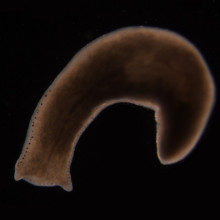
19:08 - What can we learn from immortal animals?
What can we learn from immortal animals?
with Aziz Aboobaker, University of Oxford
Some animals are what is known as biologically immortal - they don't ever appear to age and die. Can we learn from studying them? Georgia Mills spoke to Aziz Aboobaker from the University of Oxford...
Aziz - If you go down to your local river - make sure it’s not too deep - and you pick up some rocks and stones at the bottom and turn them over. If the water there is quite clean you’ll see little, normally dark brown or black curled-up things and, as the light hits them, they’ll start to crawl around and the chances are those will be flatworms also called planarians.
They’ve been of interest to scientists for well over 100 years because you can take these worms and chop them up into little pieces, and each little pieces will regenerate a whole new worm.
Georgia - Oh wow. So if I took one of these flatworms, chop it up into eight, I’d have eight flatworms?
Aziz - You’d have eight flatworms. Each one would be smaller than the original one but it would regenerate all the missing organs so the brain, the gut, the nervous system, the skin would all regenerate and form a whole new worm. So any piece you cut, any bits that were missing from that piece are remade in that tissue, and that’s done by stem cells. These animals are chock full of really amazing stem cells and it’s these same stem cells that we think are responsible for allowing them to avoid the ageing process.
Georgia - Why do we think they don’t age?
Aziz - The kind of experiment you’d like to do is sit there forever with them and make sure they don’t age and are still there. Unfortunately, we would obviously age and we would die before you could prove it, but there’s actually a very strong evolutionary argument as to why we think they’re immortal. And the reason for that is some species of these worms are entirely asexual and they only reproduce by splitting in half, so that means they actually split somewhere down the middle and the two halve regenerate the missing bits. Because that’s how they reproduce, that means that the cells in there, the somatic cells, must be immortal.
Most animals, like us, reproduce secually so we use germ cells - sperm and egg, and so the species continues through this process of sexual reproduction. But these animals have done away with that, they just have adult animals that split in half, so for the species to persist, they therefore must be immortal. We’re looking at things that people theorise or know cause ageing in other animals and seeing how the stem cells in these animals have adjusted to cope with that.
We’re starting to find really exciting examples of how they’ve done it. Some of them are just quite simple innovations that mean a particular problem is dealt with. Other’s look like they’re going to be much more complicated and take a lot more time to try and understand.
Georgia - Oh, right. Can you give me a couple of examples?
Aziz - A simple example - we think about humans, as we get older the risk that we’ll get cancer increases. In a planarian that’s highly regenerative, here’s an animal that’s full of stem cells, but it can regenerate. So one stem cell gets transformed and divides out of control and that’s really bad, obviously, for the animal because a cell dividing out of control is going to make a clone of cells that grow and cause damage somewhere. But in these animals that are highly regenerative that damage get’s quickly recognised, and the other stem cells, which are normal, will respond and repair the damage. In that sense, for example, these animals avoid the effects of age to do with cancer or transform stem cells that have gone rogue by being able to repair the damage very efficiently which, obviously, we and other mammals tend not to be able to do.
Another example I can give you is an example of telomerase. Telomerase is an enzyme that is involved in lengthening the ends of our chromosomes, so because of the mechanism cells used to replicate their DNA. Every round of cell division, it turns out, the ends of chromosomes get a little bit shorter, and shorter, and shorter. That causes a problem eventually such that after many divisions, unless you do something, the ends of chromosomes get so short that the cell has to stop dividing otherwise it becomes unsafe. You start to get instability and you can cause mutations. This enzyme, telomerase, is actually responsible for adding back the ends of chromosomes - adding these repeat units called telomeres - to the ends of chromosomes to undo this effect that happens during cell division.
This problem is called the end replication problem, the stem cells and planarians must have found a way to deal with it. So a very simple hypothesis would be that they were able just to switch on telomeres, this enzyme, whenever they need it. Of course, that’s turned out to be what they do, so when they regenerate and when the stem cells proliferate, they are able to just switch on telomeres and add repeats back to make up for the fact there’s been lots of cell division.
So you might ask the question: well, why don’t our cells do that? Well, it comes back again to cancer actually. It turns out that the end replication problem in mammals and humans is used as a way to stop cancers forming. So if you imagine a stem cell goes rogue and out of control, it’s going to get shorter and shorter chromosome ends. If it’s cycling out of control, and the chromosomes get to critical length, that’s a way of shutting down proliferation, so it’s a protection mechanism against cancer. In that scenario, you don’t want telomeres switching back on because you want to keep the stem cells that are rogue shut down.
But as I mentioned earlier, of course, planarians have a way to deal with that another way, the ability to regenerate to deal with that. So they don’t have to worry about that, they can just switch telomeres back on when they need it...

25:52 - Could humans live forever?
Could humans live forever?
with Dr Aubrey de Grey, SENS Research Foundation
Some animals appear to be able to reject the processes of ageing completely. Could this ever be the case in humans? Georgia Mills spoke to Aubrey de Grey from the SENS Research Foundation, who believes indefinite lifespan is within the reach of science.
Aubrey - Absolutely. There’s absolutely no reason why. If you look at 100 year old cars today, the people who built those cars 100 years ago would be pretty astonished that any of the cars that they built 100 years were still working in 2017. But the fact is now, if you look at those cars, nobody would say that it would be impossible for those cars to last another 100 years.
The body is fundamentally a machine. It’s a really complicated machine obviously, and it’s taking time to figure out how it works well enough to be able to do preventative maintenance with the same level of effect that we can have with a car or an aeroplane, but the fact is it’s just sort of incoherent, non-scientific, magical thinking to suggest that there would be something there that we inherently couldn’t fix.
Georgia - Aubrey De Grey is chief science officer of SENS research Foundation, a biomedical research charity based in California, which aims to reduce the damage of ageing and allow people to live younger.
Aubrey - The body does a lot of different types of damage to itself throughout life as kind of side effects of the way the body normally works and, in that sense, ageing in a living organism like you or me is exactly the same as ageing of a car or any other simple man-made machine. And so we are adopting very much the same approach that one adopts if one wants to keep a car going longer and, of course, that is simply preventative maintenance.
We identify the various types of damage that are accumulating, and we identify ways to eliminate that damage. So in the case of the human body there are seven major categories of damage. Things that have many examples within each category, but the classification is useful because for each category there is a generic approach to repairing or eliminating that damage.
For example, stem cell therapy is a generic approach to repairing one particular type of damage, namely the loss of cells, where cells die and are not automatically replaced by cell division. Stem cell therapy involves pre-programming cells into a state where you can inject them into the body and they know what to do. They divide and transform themselves into replacements for the cells that the body is not replacing on its own - that kind of thing.
Georgia - How are you looking into these? How are you testing it?
Aubrey - Of course, the details of all of this vary a lot from one project to another but, in general, this is just like any other medical research. We start out by identifying a particular approach that we think is promising for repairing a particular type of damage. And then we work to develop it initially in the laboratory, typically in cells and culture, not even in a living organism. Once we’ve got it reasonably well functioning and working in that context we will start working with mice and eventually, when it’s working well enough in mice, we can start moving to the clinic.
Georgia - Which therapy would you say is the most promising in terms of how soon it might be viable?
Aubrey - Well, stem cell therapies are, of course, in many cases already in the clinic or in clinical trials and that applies certainly for some aspects of ageing, as well as for early life diseases. For example, Parkinson’s disease, that’s a disease which is very much caused by the loss of cells - a particular kind of neuron in a particular part of the brain which happens to have a much higher rate of cell death than most neurons, so we end up losing a lot of them and that’s why we get Parkinson’s disease.
Stem cell therapies to replace those neurons are already very much underway, some clinical trials are happening. The very first attempts to make this work were actually made 20 odd years ago and back then we knew very little about how to manipulate stem cells so the results were extremely patchy. Only a few people benefited, but the people who got lucky and did benefit they were completely cured, so people are very hopeful about that kind of thing.
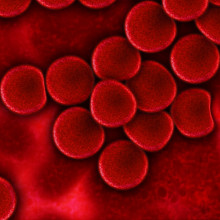
30:43 - Does young blood work?
Does young blood work?
with Michael Conboy, University of California, Berkeley
Can blood really rejuvenate you? The story starts a few years ago when scientists, including Irina and Michael Conboy from the University of California Berkeley, continuously switched the blood of young and old mice to see what happened. This is a process called parabiosis, and they found something interesting – the old mouse seemed to get rejuvenated and the young mouse started to have a problem. Was there something good in young blood, bad in old, or was this a fluke result and did this even apply to humans? Scientists are busy trying to identify what’s really going on here, but before we’ve got a clear picture - this vampiric idea has already bitten. In fact, there’s a company in America selling young blood plasma, as part of an ageing trial, for 8000 dollars. Georgia Mills asked Michael Conboy what he thought of this development.
Michael - There a couple of reasons why I would be cautious about that. One is that we didn’t see much of a benefit to the brain in any way with one mega transfusion of young blood - whole blood. I’m not aware of anybody who’s seen an improvement to an old person or any old animal by young blood - it might just be that they haven’t studied it yet.
This company that is giving the infusions of young plasma, which is the non-cell part of the blood - it’s like liquid juice part not the part that doesn’t have the cells in it - is basing that idea on something that was published by a group where they dosed old mice with small amounts of young plasma, several doses over a week or ten days or something like that, and saw improvement in the cognition of the mice in this maze.
This company that’s giving people, for a fee, doses of purportedly young plasma. Not treating any particular disease but just as an anti-ageing treatment or something like that. I'm not 100% sure that infusions of young plasma are going to help anyone until I see that being reproduced. Till I see other groups doing those experiments and seeing what the results are.
On one hand, I’m not 100% sure that the treatment will be effective, and on the other hand there’s always a risk of getting some sort of complication when you’re getting any tissue donation from someone who’s not you. There’s risk there, and these are risks of having some sort of reaction between maybe some proteins in the donor blood. These types of things can cause organ failure, they can cause autoimmune diseases, and would definitely not be rejuvenated.
Georgia - Does blood have to go through the same rulings as all other drugs that are being used in America?
Michael - Blood is largely unregulated. There are guidelines that you have to follow for collecting it and storing it, transporting it and labelling it, that kind of thing, but it doesn’t have to go through an FDA approval.
Georgia - That’s very surprising. I suppose if someone comes to you and says: here, I’ve got some elixir of life - it’s blood. You know be careful, I suppose?
Michael - Yeah. If I was in an accident and I was bleeding out and dying and a doctor said we’re going to have to give you a couple of units of blood otherwise you’ll die. I would say: for sure. But not just on the offshoot that it might make me feel younger and especially since I don’t think it works. I’m not convinced it works yet.

37:08 - Can your diet affect your lifespan?
Can your diet affect your lifespan?
with Alex Gould, Francis Crick Institute
Diet heavily affects our health, we all know this, so could it affect our lifespan? Well, you can investigate this using the fruit fly. And that’s what Alex Gould and his team at the Francis Crick institute have been using to investigate the impact of diet during development, as Georgia Mills found out.
Alex - I should really say that the inspiration for doing this work came from quite a lot of human epidemiological data, and also studies done in rodents, which show that the nutrition in early life has a very long term influence in the ageing process and, ultimately, in the regulation of lifespan.
Georgia - In general, research is pretty clear: not enough food when you’re developing can be really bad news for your health and your lifespan. But a reduction in just some types of food has an interesting result…
Alex - Work in rodents suggests that a degree of protein restriction, so a moderate to low protein diet during the lactation period can actually produce a slightly longer lifespan than a control diet. It may not all be bad news and it’s a question about finding the right kinds of dietary regime, and the time during development when the growing animal is exposed to this.
Georgia - Alex and his team put flies in their early stages of development - their larval phase - on a low protein diet and then when they were adults, they took the off. And this, it turns out, dramatically affected their lifespan…
Alex - Depending upon the exact conditions that we use, you could get up to a twofold increase in lifespan and this is at least as large, if not larger, than the more usual kinds of dietary manipulation that have been done in drosophila (fruit flies) and in other animals, which is to manipulate the diet of the adult not the larva.
If you manipulate the diet of the adult, and this is called dietary restriction or DR, then you can substantially increase the lifespan as well. But the new angle here was that we found that by manipulating the very early diet during development we could have at least as profound an effect on lifespan.
We don’t fully understand how this long term mechanism works but we did find, quite surprisingly actually, that one of the influences was on the types of lipids, the types of fatty acid derivatives that are produced by the equivalent of the fly skin. So it turns out that on a low yeast diet these animals produce less of these lipids, and that these lipids at high concentrations can actually prove to be toxic and they can decrease the lifespan of flies. These toxic lipids not only shorten the lifespan of the fly that produced the lipids, but because they shed them into the environment they can shorten the lifespan of neighbouring flies, so one fly can influence the longevity of another fly.
Of course, this is all research using this model fruit fly, and the relevance of this to other organisms such as mammals are not yet clear, but there are some intriguing aspects of similarity. One of these is the fact that our own skin, of course, produces these similar kinds of lipids to the ones produced by the fruit flies. These have a beneficial function to prevent us from drying out but also, as in fruit flies, some of these lipids can be toxic.
Georgia - So we’ll have to wait and find out if there’s any relevance to us humans. Seeing as I’m not a fruit fly, and equally not in my larval stage, do we know anything about adult diets and ageing. One diet that has attracted a lot of attention recently is the idea of caloric restriction...
Alex - Caloric restriction can be defined in various ways by various different people but, roughly speaking, it’s something like a reduction of between 20 and 40% in the number of calories. This has been shown to produce various kinds of health benefits in a number of model organisms, but I think it’s fair to say that it’s not really clear what the effects of this would be upon longevity in humans. And one of the rather obvious reasons why this is the case is it’s actually very difficult to persuade people to eat a substantially reduced number of calories for long enough to assess effects on something like lifespan.
However, there have been quite a few shorter term studies where people have found substantial benefits in the short term upon things like obesity, cardiovascular health, and reduced risk of Type 2 diabetes. So as far as the available evidence is around, it does suggest that caloric restriction can produce some health benefits. I think it still remains an open question about whether that will extend human lifespan.
Georgia - You’ve been very careful to let me know that your findings are in fruit flies only at the moment, but if I put you on the spot and said: I want to live a long life, what do I do? What would you say to me?
Alex - I would say don’t do anything too extreme. It’s important to have a very healthy balanced diet - plenty of fresh fruit and vegetables. And perhaps I might also say that you can try and decrease the amount of foods that have a high glycemic index - sugars which are very quickly metabolised and can produce a spike in our circulating glucose levels, it seems like that can be quite damageing. If you avoid refined sugars, the kind of things present in desserts, and instead focus more on complex carbohydrates. Just really eat a varied and balanced diet - I think that’s really the secret to not only a long life, but a happy one.
Georgia - So fewer Wine Gums for me then?
Alex - I would probably cut down on the Wine Gums and increase the pieces of fruit you eat in a day
Georgia - So a long and almost happy life then!

How to keep your brain young
with Dr John Medina, University of Washington School of Medicine
Is there anything you can do to help your brain age well? John Medina is a biologist at the University of Washington School of Medicine and he’s the author of the book Brain Rules for ageing Well. He took Georgia Mills through what happens to our brains as we age and some things do actually get better…
John - There are some things that improve so there are some good news. You experience fewer negative emotions as you get older so you tend to look on the ‘glass as being half full.’ That’s a little odd, most people think as you get more like Uncle Scrooge than Bob Cratchit but, in fact, you do get more optimistic. Seniors tend to score higher on agreeableness tests, they’re more emotionally stable, so those things actually start to improve.
Some things that stay the same is your access to your vocabulary; what we call ‘semantic memory’ which is memory for a thing. And ‘procedural memory,’ this is how when you get into a car you know how to drive a stick shift. There’s a motor memory involved with that, so that tends to stay the same.
Georgia - But it’s not all sunshine and roses…
John - Your ‘working memory’ begins to fail. That’s what we used to call ‘short term memory.’ So your ability to hold something in your head for a period of time begins to erode. This may have happened to you Georgia where you go walking down to the basement to fetch something, and as soon as you down there you completely forget why you went down there. Well that is, in part, a failure of working memory, so that erodes.
Another memory gadget that erodes is what we call “episodic memory.” Episodic memory is the ability to remember an episode so that usually means there’s a person. If it’s you it’s ‘autobiographical memory’, and another one is the ‘tip of the tongue’ problem - that’s what we call it. Its formal term is ‘phonological access.’ That get’s worse as you get older. So there's memory issue that begin to fail as you age.
One of the things that is part of the bad news is a gadget we call ‘executive function.’ Executive function has two founding components to it: one of them is cognitive control, which is the ability to focus on things and the ability to create a detailed heuristic out of a series of inputs. Executive function does begin to erode when you get older so there’s forms of that as well. Which is why, what’s so interesting is we should probably get to the good news pretty soon otherwise this will just be one depressing interview.
Georgia - Good point. So on that note John, how do we keep our brains healthy? Take it away…
John - Here’s a really good way to improve executive function: exercise. Aerobic exercise, even if you just have to get splashed into a pool and wiggle around for a while. The fact that you’re doing aerobic exercise, even moderate aerobic exercise - you need about 150 minutes in a 7 day period is both necessary and sufficient to improve executive function in older populations.
Another one, interestingly enough, is dancing. In fact, when I was busy writing this book, Georgia, I began thinking is there any combination of behaviours that you could do all at once, and if you are at all ambulatory and can go dancing. This was done with randomised blinded tests. Their posture and balance improved by 25% and they reduced the number of falls by 37% just by getting out there on the dance floor.
You can also improve certain types of executive function with dancing and the interesting part of dancing is that is does something absolutely magical. You can show that if you reinstitute physical, non-exploitive touch in a senior you begin to have lots of cognitive things go back online, including parts of executive function.
Georgia - Oh right. So have you taken up salsa dancing since you wrote this book then?
John - Oh man… I’m going to. I’m a horrible dancer. In fact, the only thing I’ve ever done in my entire life was just wiggle in front of somebody.
Georgia- Dancing, or even light wiggling… check. What’s next?
John - Remember I talked to you about the fact that episodic memory also declines with age. This is the memory for episodes, so characters that are interacting through time. That actually declines with age fairly substantially, but there is a way to improve episodic memory specifically that has been tested in randomised blinded trials. You need to regularly get into arguments with people who don’t agree with you. As long as you guys can remain friends, one of the best ways to improve episodic memory is to argue with somebody in such fashion that it forces you to get on your game. The more intellectually vital you become, the more powerful your arguments are, and the friendlier they are in good discussions, you can actually use that to improve episodic memory.
One of best things, I think, you can do in the UK is to have friends at a dinner table. One who believes that Brexit is the best thing that ever happened, and one who believes Brexit is next to the apocalypse, and have em go at it.
Georgia - Disclaimer: we will not be held responsible for any family fighting that breaks out over the dinner table.
Now what about brain training?
John - I’m hopefully a nice guy, but I’m a pretty grumpy scientist and I’ve a really low tolerance for uncontrolled or uncontrollable variables. And one that really got under my craw was when I would hear these advertisements that seniors who do Sudoku are going to have wildly better brains. Seniors that do crossword puzzles are going to have wildly better processing speeds. There’s a lot of claims that have been made.
When you dig into that literature, the only thing that you find is that Sudoku increases your ability to do well on Sudoku. It’s what we call near transfer effects. But when you ask the question: does doing Sudoku or doing crossword puzzles translate into other cognitive components that have nothing to do with Sudoku, like does it improve your memory, does it change processing speed unrelated to numbers?
The answer is… no.
What you really want is that you want to be able to play a game and then have it improve your memory so that when you’re doing other activities, those activities improve also. That would be the gold standard for far transfer effects.
Now here’s something that’s interesting. There are some things that do far transfer effects, and they’re video games. One of the reasons why in the chapter, one of the most delightful chapters I wrote in it, I was a graphics artists and an animator before I was a scientists and so I have a love affair with all things animated and even digital.
This was the first and only time I have ever seen a video game literally, Georgia, on the cover of Nature. And I thought to myself: oh my gosh there's a brain scan there and I though John Maddox the former editor of Nature is probably rolling over in his grave. But here it was, a video game on the cover of Nature. And the reason why it’s there is that it was the first exercise that has been shown to have far transfer effects in seniors.
Executive function is what was measured - remember that’s that cognitive control and emotional regulation, ability to shift attentional states. What they did is they got a bunch of 73 year olds who played the thing for a month, and then they looked at a sociometric tests called “working memory with distraction,” so it’s an ability to look at short terms memory and distractibility. What they showed is that those seniors, those 73 year olds who played that video game got what you would call a plus 100 on the score. And without the training, the controls that didn’t have exposure to the neuro racer video game got a minus 100. And here’s the big deal, that’s a far transfer effect because that video game, you’re just playing a video game, and yet it has effects in other cognitive domains. The reason why it got on the cover of Nature, I’m convinced, is that those boosts were still stable six months later - no kidding.
Georgia - Oh Wow! Thats a long time. And they weren’t playing for those six months?
John - That’s right, yeah. They only played it for one month and were still able to show, so there are things that seniors can do. I’m convinced that the nursing home of the future is going to have a whole room devoted to video games of this calibre.










Comments
My cardiologist (I’m a
My cardiologist (I’m a retired congenital-heart-defect specialist myself)was angiographing my 83-years-old coronary arteries when he started whispering to his cath-lab nurse.
I could tell he had seen that I had triple coronary artery disease. However, because I had never experienced angina pect., I knew my myocardial fuel supply was adequate and therefore that Mother Nature had given me vascular-collaterals, compensating for my triple coronary artery disease.( I had had no intrathoracic surgery that could have promoted such vascular-collaterals. Could my 30 years of cath-lab. exposure to x-rays have promoted the vascular-collaterals? Those years had ended 10 years before. Could my more-than-10-years-of-atrial-fibrillation have promoted the vascular-collaterals?
We discussed the issues and together with our coronary-artery-surgeon agreed that coronary-artery-surgery was contraindicated.
Such vascular-collaterals are well-known to occur.
Does this phenomenon suggest an Rx in your lab.? (Pleurodesis by “Poudrage” is an old way of stimulating vascular-collaterals. I have seen “pleurodesised” vascular collaterals so effective that a child with congenital pulmonary atresia was not even cyanosed.)
Add a comment